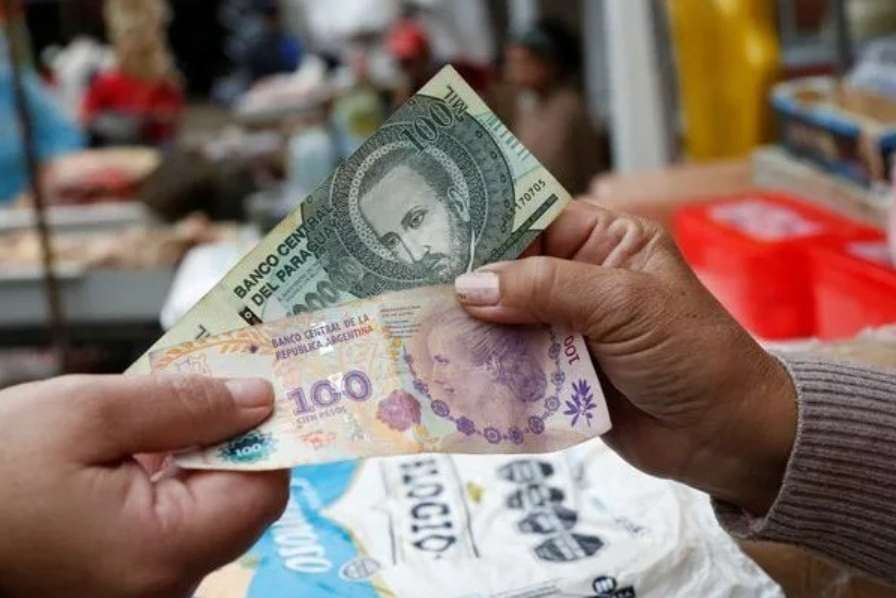U.S. Treasury Yield Spread Narrows to Five-Year Low
Advertisements
In a remarkable turn of events for Argentina's economy, the recent tenure of President Javier Milei has ushered in significant reforms that have begun to reshape the nation's financial landscape. Since Milei took office, there has been a notable reduction in the yield spread between Argentine and U.S. government bonds, reaching its lowest point since August 2019. As of Monday, this spread had dropped from an alarming 19.08 percentage points at the time of Milei's election to a much more manageable 9.67 percentage points. Such a change signals a shift in investor sentiment, reflecting an increasing perception that Argentine bonds are less likely to default, a sentiment that serves as a crucial metric for economic health.
The drastic reduction in yields, which some analysts attribute to Milei's sweeping economic reforms, highlights a growing confidence among investors. This newfound trust is further reinforced by the steady decline in monthly inflation rates from 12.7% a year ago to just 3.5% in September, marking a significant tapering of inflationary pressures that had long plagued the nation. This inflation rate is the lowest Argentina has seen since late 2021, demonstrating the effectiveness of the Milei administration's approach.
Fund managers and investors have shown notable optimism regarding Milei's capacity to curtail inflation, which was projected to reach staggering levels, and to address the longstanding issue of budget deficits that had continued to inflate over the years. There is a palpable sense that his policies could mark a turning point for Argentina, with anticipation building for the next wave of economic progress.

Since July, fixed income investors have reacted positively to Milei's reform agenda — evidence can be seen in the soaring prices of some sovereign bonds, which have reached levels not seen since the 2020 restructuring. Higher bond prices typically correlate with lower returns for investors, portraying a market that believes in Argentina's improved chances of meeting its debt obligations by January 2024. This trend underscores the belief that Argentina is reclaiming its footing in the global investment landscape.
It is essential to understand the broader historical context in which Milei has implemented these reforms. The Argentine economy had witnessed significant deterioration over the years, with public debt reaching an alarming 155.4% of GDP as of September 2023, an unprecedented figure. This weighed heavily on the country, pushing it into categories of both emerging market and developed economies. As a nation that once boasted of wealth and opportunity, the continued spiraling of debt and inflation cast a long shadow, necessitating urgent reform.
To combat the formidable challenges posed by a staggering CPI increase of 133.5% this year, alongside a 1.6% contraction in GDP, Milei enacted what has been termed "shock" economic reforms. His approach has included eliminating numerous price controls and slashing public spending, an aggressive move aimed at reducing the weight of inefficient government structures on the economy. Crucially, these reforms have also targeted the high inflation rates that have eroded the value of the Argentine peso and diminished the citizens' purchasing power. One key aspect of his strategy involved illuminating and removing subsidies on utilities and transport, which had previously distorted market dynamics.
Moreover, in a bold move that has attracted attention, Milei reduced the size of the public sector by laying off thousands of governmental employees. This decision was met with mixed reactions; however, it allowed for the reallocation of resources, driving efficiency and lowering the fiscal burden—an essential step in revitalizing the economy.
Milei's approach mirrors classical economic theories advocating for smaller government intervention to spur economic growth and innovation. By reorganizing how fiscal management operates, his administration's aim is not only to stabilize but also to foster a market-friendly environment that encourages investment and consumer confidence, maintaining a delicate balance as the nation transitions from a cycle of despair to hope.
Looking at the post-reform landscape, it is evident that there are tangible positive outcomes. For instance, the financial balance in Argentina has reportedly turned positive for the first time since 2010, with a basic surplus of close to 1.5% of GDP recorded during the first eight months of the year. This is a significant milestone that serves as testimony to the financial prudence now being practiced by the government and reflects a larger trend toward economic responsibility.
The administration's concerted effort to not only maintain fiscal balance but also to reduce national debt has resulted in a remarkable downsizing of public debt relative to GDP. This decline—from 155.4% to 91.5% by September 2023—demonstrates a return to financial normalcy, which has become a fundamental goal of Milei's strategy.
As the reforms continue to unfold, many observers look to international institutions such as the International Monetary Fund (IMF) for guidance and feedback on Argentina's progress. The IMF, which has historically provided substantial financial support to Argentina, recently commended the government's performance for exceeding certain expectations and reaffirmed that the economic program is "steadily back on track."
This endorsement marks a vital juncture, as international backing can significantly influence investor perceptions and economic prospects. The reforms, while initially controversial, are gradually garnering global attention as effective measures to restore confidence and competitiveness in a historically tumultuous economic environment.
In conclusion, the economic metamorphosis initiated by President Milei is still in its infancy, but the preliminary results present a hopeful outlook for Argentina's future. It stands as a testimony to the power of decisive, if drastic, reform in overcoming entrenched economic challenges. As the nation progresses through this critical period, the interplay of government policy, investor confidence, and public sentiment will be paramount in determining the long-term stability and prosperity for Argentina's economy.